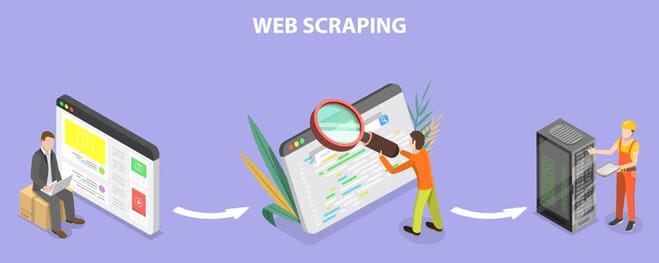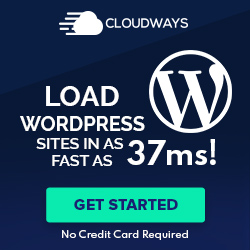Due to the evolution of technology and the digitization of businesses, data extraction plays a vital part in creating a successful business strategy. In these times, web scraping, or web data extraction, can give companies the advantage of stepping ahead in the competition between rivals in the long run.
Web scraping refers to the process of extracting data from websites. Companies can use web scraping for market research, price monitoring, lead generation, and more. As manual data extraction can be taxing and time-consuming, most businesses rely on automation (tools and APIs) to simplify the process of data collection from websites. However, our primary focus is on scraping APIs. This post will cover web scraper API and its significant benefits and discuss the essential types of APIs widely used in different industries.
Contents
What is a Web Scraper API?
A web scraper API is a powerful data extraction tool for specific programs, databases, or websites. It builds a data pipeline between the site and the user requesting to target a specific part of the website content. Data can be extracted on an automated schedule or manually, like a subscription, where you get updated content regularly. Web scraper API can rotate proxy servers, bypass CAPTCHAs, render JavaScript, and avoid geo-blocking with a simple API call.
In essence, a web scraper API links the data collection application developed by the service provider to the websites you need to scrape. This tool serves many purposes, like market research, analytics, data mining, content marketing, and content aggregation, for better ranking in search engines. Companies use scraper API when they need more budget, time, or resources to build their solution, which requires support and maintenance. However, API technology should be provided by the site you want to scrape data from.
Related: What is a High-Level Language?
Benefits of a Web Scraper API:
A web scraper API offers numerous benefits to users looking to scrape website data. Here are the main advantages of using this tool:
- Web scraping APIs fix issues with proxies, CAPTCHAs, JavaScript rendering, and geo-blocking.
- It filters out needless data and presents only relevant data in JSON format by default.
- Scraping APIs are not hard-coded solutions, which makes these tools highly customizable and interoperable with other scripts. Plus, it allows you to use your custom headers while making requests to a website.
- Anyone who wants to autonomously automate the tasks linked to scraping web content can use scraper APIs. It automates the process, which narrows down several requests to one.
- Most web scraping API services are scalable, indicating that they can scrape URLs at an incredible speed, such as scanning thousands of pages every second and collecting data daily.
- Scraper APIs also discourage independent scraping, removing the need to send out thousands of requests and deal with website crashes due to high traffic.
- These APIs are legal. However, sending limited requests in a given time is advised as some websites may not be designed to handle a large number of requests simultaneously.
Related: What is Implicit & Explicit Constraints in Backtracking?
Types of Web Scraper API:
A scraping API is an interface that enables accessible data collection from websites in any format with no roadblocks. Different scraper APIs are available online to serve different industries. However, not all of them are equal regarding features and functionalities. Here are the two main types of web scraper APIs:
- General – Some scraper APIs serve general scraping purposes, where services work with any data. ScrapingAnt is a good example that can handle headless browsers and rotating proxy servers. It works great for general web scraping tasks like price monitoring, real estate scraping, and obtaining reviews without getting blocked. This API is mainly used in real estate, eCommerce, advertising and marketing, and healthcare industries.
- Niche-specific – These APIs focus on specific types of data or sources. Niche-specific interfaces are better suited for certain websites, pages, solutions, and other services. One example is Google SERP API which accesses structured Google search results without CAPTCHAs or blocks.
Another example is Amazon scraper, which collects product data from Amazon with Amazon’s category URLs. Specifically designed for the most significant marketplaces on the internet, Amazon scraper helps regularly extract prices, shipping costs, and information for various products. Visit the Oxylabs website for more information about Amazon and other Scraper APIs.
Final Note:
Web scraper APIs can provide significant benefits to businesses. Its data extraction and presentation simplicity encourages more and more decision-makers to use scraping APIs to make well-informed decisions and boost their competitive edge. Hopefully, this post helped you understand scraper API and its types, and you’ll know how to apply it to your business.
Read more:
Sent as SMS via Server | What does it mean?
How to Create New Layer From Selection in Gimp
Top 5 SVG File Viewers for Your Android Mobiles
How To Fix Twitch Black Screen While Streaming?
How to Monetize Facebook Pages with these 8 ways

